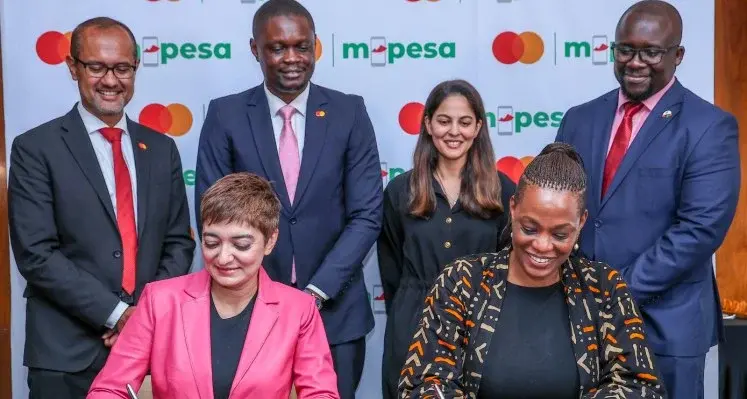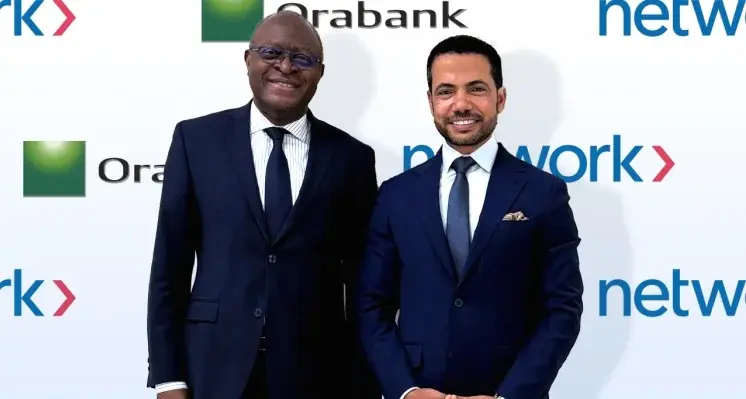
AFC have agreed with Itana to jointly develop the first digital economic zone in Africa. (Image source: Africa Finance Corporation)
Itana, Nigeria’s inaugural licensed digital economic zone management company, has partnered with Africa Finance Corporation (AFC), the continent’s premier infrastructure solutions provider, to co-develop Africa’s first digital economic zone
This zone is designed to enable global and Pan-African technology, finance, and service-oriented businesses to seamlessly scale across Africa, thus unlocking the continent’s digital economy. The collaboration was formalized at the Global Africa Business Initiative (GABI) during the United Nations General Assembly (UNGA) in New York, witnessed by global government and business leaders.
Located in Lagos, Nigeria, the Itana Digital Economic Zone will function as an online jurisdiction, facilitating the establishment and operation of global businesses in Nigeria. Through Itana, companies can remotely incorporate and manage their businesses within the zone, benefiting from laws, incentives (tax, immigration, and banking), and services optimised for the digital economy. Additionally, the zone will feature eco-friendly live-work districts and a live-in accelerator programme, showcasing the future of African urban development. This will provide businesses with the necessary infrastructure and support to scale and compete globally.
Africa's digital frontier
AFC will provide project development funding for Itana and plans to lead the financing of phase 1, which has a budget of approximately US$100mn. This phase will include an eco-friendly tech campus in Lagos and funding for startups through the Accelerate Africa programme, Itana’s accelerator in partnership with Future Africa. AFC will also aid in the deployment of the Itana Digital Economic Zone, aimed at attracting global and Pan-African tech, finance, and service businesses looking to operate across Africa.
In partnership with Future Africa, PwC Nigeria, and Charter Cities Institute, Itana and AFC are advising the Initiative for the promotion of Digital Free Zones in Nigeria (DiFZIN), a non-profit focused on advocacy and policy research. This group represents the private sector on the recently announced Nigerian Federal Government steering committee for establishing Digital Economic Zones in Nigeria, chaired by President Bola Tinubu and comprising key Government Ministers and Agency Heads.
Itana aims to create a conducive environment aligned with the demands of the digital trade and technological age. The organisation has recently launched the Itana Application, offering individuals access to services like business visa facilitation, local bank accounts, and a marketplace of trusted vendors for African business operations. Eligible businesses can easily register as a Free Zone Enterprise (FZE) and obtain a Business Operating License, joining the ranks of digital companies such as Reliance Info and Future Africa.
Following incorporation, businesses can benefit from tax and capital repatriation incentives, access to the Itana business community, and apply for business banking and special work and residency permits without expatriate quota restrictions.
“Itana intends to be to Nigeria and Africa what Delaware & Silicon Valley is to the U.S., the DIFC is to Dubai, and e-Estonia is to the European Union,” said Luqman Edu, CEO of Itana. “Itana is poised as the gateway to doing business in Africa. Local and international businesses looking to expand their operations across Africa will naturally look to Itana as their point of entry.”
“Africa’s digital economy is poised for significant expansion and innovation following the rapid adoption of mobile technology, a burgeoning youth population, and the growing importance of digital commerce and services,” said Samaila Zubairu, president & CEO, Africa Finance Corporation. “In support of this, AFC is proud to be a pioneer alongside Itana, in building Africa’s first digital economic zone. This unprecedented initiative marks a pivotal step towards creating a thriving hub for the African digital economy, cementing the Corporation’s commitment to driving innovation, job creation, and sustainable economic development across the continent.”
Last year, Itana announced a funding round backed by prominent venture capital firms and tech industry leaders, including LocalGlobe, Amplo, Pronomos Capital (backed by Peter Thiel), Balaji, and Future Africa (led by Iyinoluwa Aboyeji, co-founder of Andela and Flutterwave).
As Africa’s first Digital Zone, Itana remains dedicated to positioning Nigeria as a leader in the global digital economy. The zone will be situated in Alaro City, a mixed-use development spanning over 2,000 hectares in the Lekki Free Zone.

























